Thought Leadership Studio Podcast Episodes:
Interview with Tom Jackobs - Storytelling and Captivating an Audience
Episode 47 - Tom Jackobs is the Impact Pilot and Founder of the Jackobs Effect. He makes storytelling an art and a science.
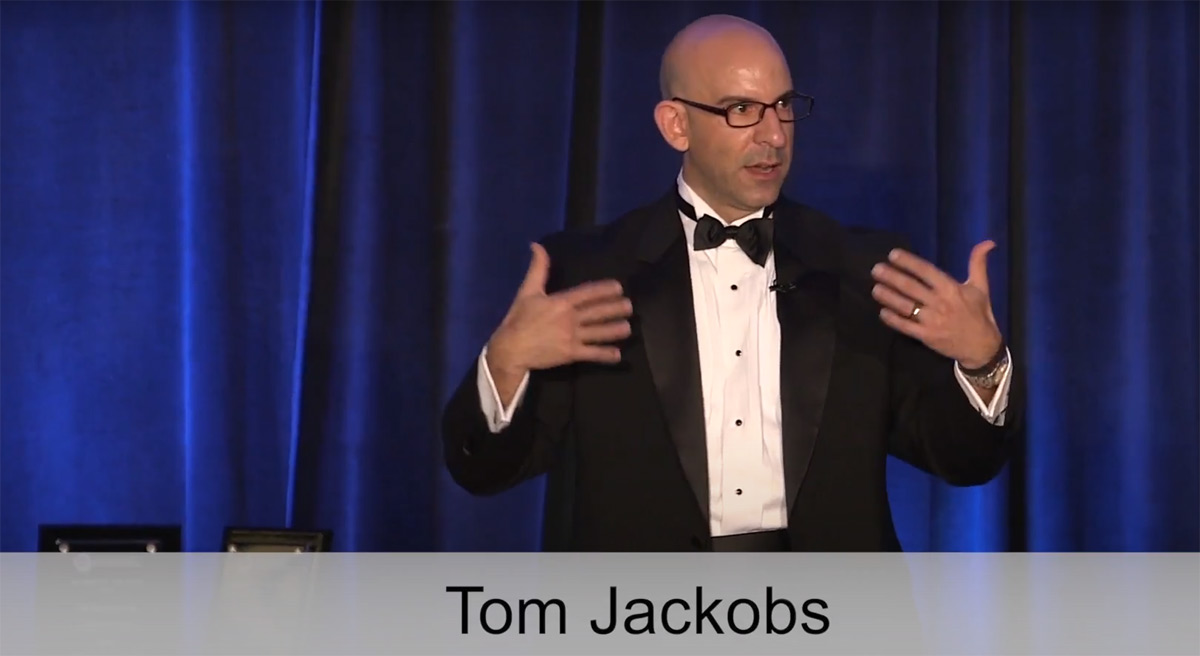
#entrepreneurship, #inspiration, #interviews, #josephcampbell, #leadership, #marketing, #myth, #persuasion, #sales, #storytelling
Or Click here to listen or subscribe on appWhat this episode will do for you
:- Discover Tom Jackobs' journey from the fitness industry to becoming the Impact Pilot, a sales coach and founder of the Jacobs Effect.
- Discover how to craft your signature story using a structured framework that resonates emotionally with your audience.
- Learn the importance of asking the right questions in sales conversations to lead prospects towards meaningful decisions.
- Gain practical techniques to build confidence, reduce nervousness, and enhance your public speaking and presentation skills.
- Uncover the connection between impactful stories and effective sales strategies, and how they intersect to drive business growth.
Tom Jackobs.
In this episode, we have the privilege of interviewing Master Storyteller Tom Jackobs, the Impact Pilot.
Tom is a versatile entrepreneur and sales coach as well as a master storyteller. Tom's life story is a tapestry woven with diverse experiences, resilience, and the art of selling.
Starting as a teenage DJ with an innate knack for direct response marketing, Tom's creative flair led him to connect with brides-to-be through snail mail, offering DJ services and even a string quartet. A stint in Oil and Gas followed, but his entrepreneurial spirit persisted.
A transformative moment came when Tom ventured into the fitness industry. He bought a personal training facility in 2008, struggled initially, and realized the vital role of sales. Embracing storytelling, he turned the tide, increasing revenue from $100,000 to $500,000 within a year.
Tom's prowess as a coach flourished as he empowered fitness professionals worldwide, generating over $4 million in sales during workshops and presentations. Today, he helps service providers harness the magic of storytelling to elevate sales and deepen connections.
Beyond business, Tom is a flying enthusiast, a global explorer, and a passionate educator. His journey epitomizes adaptability, resourcefulness, and the transformative impact of storytelling in entrepreneurship. Tom Jackobs is an embodiment of success through narrative.
Some of Tom's coordinates:
Curated Transcript of Interview with Tom Jackobs
The following partial transcript is lightly edited for clarity - the full interview is on audio. Click here to listen.
Chris McNeil: I'm Chris McNeil, host of Thought Leadership Studio, and I'm sitting here with Tom Jackobs. Tom Jacobs has a gig called the Impact Pilot. He's a sales coach, founder of the Jacobs Effect, and he was in the fitness business for a while. He has been an entrepreneur for 30 plus years. He sold his business, which he owned for nine years, to become the Impact Pilot, helping entrepreneurs generate more income through better sales strategy and using stories to sell. Welcome, Tom.
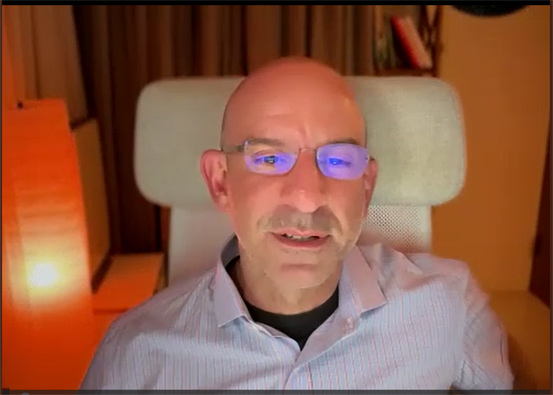 Tom Jackobs: Hey, good to be here, Chris. Thanks for having me.
Tom Jackobs: Hey, good to be here, Chris. Thanks for having me.
The Inward Journey
Chris McNeil: Great to have you. And just to kind of set the stage for our listeners - what was the key moment that led you to decide to create this concept of the Impact Pilot? And what does it mean to you?
Tom Jackobs: Yeah, well, what, what, what it means to me and what it should mean to other people, if I got it right. So after I sold my fitness business, I just kind of went on this inward journey of like, what do I do when I grow up? And it's almost like you graduate from college when you sell a business that you've been in for 10 years. And so I was, didn't know really what I wanted to do (laugh), so, but I knew I was really good at coaching and coaching salespeople, and I had, you know, made tons of money by selling programs on the stage.
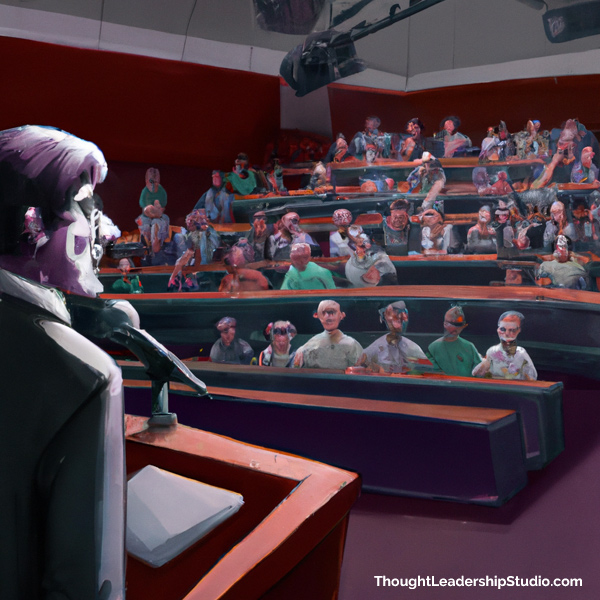 So doing small workshops and traveling all over the world, selling these programs from the stage. And I was like, you know, if I combine those two, then I could create something. And so I was working with a coach to kind of figure out the branding and all that. And I'm a licensed pilot or single engine planes. And then I, so I was like, ah, how can I tie that in because it's kind of cool (laugh) in my world.
So doing small workshops and traveling all over the world, selling these programs from the stage. And I was like, you know, if I combine those two, then I could create something. And so I was working with a coach to kind of figure out the branding and all that. And I'm a licensed pilot or single engine planes. And then I, so I was like, ah, how can I tie that in because it's kind of cool (laugh) in my world.
Chris McNeil: It is.
Tom Jackobs: Anyway. And I was like, well, I'd like to have an impact on people's businesses. So hence, impact Pilot was born when my, my pilot friends, when they were, they were like, so what, what's your title now? I said, impact Pilot. So what are you crashing planes? Or like, what , like, you shouldn't be doing that. I was like, well, not, not that. Oh yeah.
Chris McNeil: Impact has multiple meanings, right.
Tom Jackobs: Impact, but an impact. Right?
Chris McNeil: Yeah. We wanna have an impact on our audience. We don't want the wrong kind of impact with our plane.
Tom Jackobs: That's correct.
Chris McNeil: My uncle was a pilot. He scared the hell out of me when I was like 10 years old, took me to his little Cessna and decided to show off with a little dive bomb stunt. I didn't quite get airsick, but it was pretty thrilling actually.
Tom Jackobs: Yeah. When I was, when I was 12, one of, I was in Boy Scouts and one of the scout leaders had a plane, and that's what got me the bug to go get licensed.
Chris McNeil: Yeah. And the metaphor of the plane is kind of interesting. I remember there's a story - and I used to ride motorcycles a lot until I had a life changing accident. I'm still here, so it wasn't a life ending accident. I found a lot of - I guess - "speed freaks" tend to be both motorcyclists and pilots, because there were several pilots who were riders in my group...
Tom Jackobs: .. That would be me, too...
When the Journey is the Reward: The $100 Hamburger
Chris McNeil: And they had a story about the hundred dollar hamburger - going to get a hamburger that was famous in some restaurant in the middle of Texas was really just an excuse to fly your plane somewhere.
 Tom Jackobs: That's right. And I've been to that airport. It's it is almost an hour and a half from Houston. So I was in Houston for 20 years. So we would fly up. Yeah. So we would fly up there, it's in the middle of nowhere. It's on the field, and they have like this fifties theme to it. but there's several different airports where you can fly in and they call it the hundred dollar hamburger because it costs you a hundred bucks in gas to just get there.
Tom Jackobs: That's right. And I've been to that airport. It's it is almost an hour and a half from Houston. So I was in Houston for 20 years. So we would fly up. Yeah. So we would fly up there, it's in the middle of nowhere. It's on the field, and they have like this fifties theme to it. but there's several different airports where you can fly in and they call it the hundred dollar hamburger because it costs you a hundred bucks in gas to just get there.
Chris McNeil: Right, exactly. Exactly. But is the reason to go, you know, we and motorcycles, we wanted a reason to journey and just ride out through the countryside. So the destination was part of it, but the journey was part of it too. Absolutely. So tell me a little bit about your journey and, and, and how you've managed to take this, the skills and the resources that you've built and, and starting in the fitness industry and, and now, and now you're helping people create impact from a stage, which I think is relevant to the type of listeners I understand we have.
Tom Jackobs: Yeah. So when I started my fitness business, I'd spent 12 years in corporate America, like doing logistics work. And when I opened up my fitness business, you know, it's like this should be no problem. And I've had small businesses before, but this was, this was very different because one, it was pretty large scale, you know, it was personal training studio, but there's a lot of traffic and a lot of money involved in terms of upkeep and equipment and, and all that.
And I didn't have a safety net when I went into it either. I didn't have, I quit my job to open the fitness business and within six months I almost went broke because I did not know how to sell. I told people like, well, what do you mean you didn't know how to, I was like, well, I couldn't close a door (laugh) when when you can't close a deal, you can't close a door.
So I had to learn how to sell. And, you know, within six months, you know, that I almost exhausted all my money, all of my savings for the business. And I was like, something has to change. So I went head first into learning all about sales, sales psychology, the psychology of buying. I hired a coach to help me as well. And I completely changed my mindset when it came to sales because I thought, you know, as a fitness trainer, I'm in the health and wellness industry, you know, people come to me, they're vulnerable.
You know, you shouldn't have to make them do something that they don't want to do. And I was just having, like, basically telling people the price and expecting them to buy (laugh). So, and, and that wasn't working very well. So it was, it was, it's all about, and what I developed then is asking the right questions in the right order to get the right answer. So, and the right answer is that they ultimately buy, once I perfected that, like I used to close like maybe 10% of the people that would walk into my fitness studio after I was closing, like 80% of the people that were coming in and sitting down with me for a consultation. Because if they're coming in to the fitness center for a consultation, they're ready to buy something.
Chris McNeil: That's a commitment right there. Absolutely.
Tom Jackobs: Yeah. So if you're not having an 80, 90, you know, a 100% close rate - you shouldn't have a hundred percent close rate. That's my theory anyway. If you have a hundred percent close rate, then your prices are too low.
Chris McNeil: Right.

From Doer to Teacher
Tom Jackobs: And that's what propelled me to then teach other fitness professionals how to sell. So that was another side gig that I had. I was actually working for a coaching company that had a sales program. They had coaching for fitness pros, and I ultimately became one of their top salespeople.
And that's when I started traveling around the world presenting, you know, did, I did a five hour workshop for fitness people and all about how to build your business, how to sell, how to, you know, market everything five hours. And on the back end of that, I would offer the program. And I was, I sold $4 million of that program in three years.
Chris McNeil: That's fantastic.
Tom Jackobs: Yeah. And primarily from the stage.
Chris McNeil: Well, I'm just trying to play my role as listener advocate and I'm sure there are people listening to this wondering, well, how does this apply to me? How can this help me sell ideas? And I think selling fitness and selling ideas is really equivalent because fitness is an intangible. You're selling somebody on the future vision, the belief that they can change their body, that they can create more health, more vitality, more energy.
And what are some of the key components that might have surprised you that were part of selling that you did not realize before you had that breakthrough from opening your fitness business and realizing you had to learn to sell?
Tom Jackobs: Yeah. So whatever you're selling, that's not what you're selling ... if that makes any sense whatsoever. So in the fitness business, I thought I was selling the workouts - that hour session with me, or half an hour session with me. That's what I was selling.
Chris McNeil: Well, then you're selling pain.
Tom Jackobs: Exactly. Well, I was selling something that nobody wants. Right? Nobody wants to work out, you know, that's why there's an obesity problem in America. but what they wanted was the end result.
And that was the light bulb moment for me in terms of shifting. And whether you're selling widgets or ideas, it's what's the outcome? What's the result somebody will have from implementing that idea or buying that widget?
What is it that they want? And that's ultimately what you're selling, not the thing itself.
Chris McNeil: And how do you lead people to create this vision of what they want and believe in it enough to in invest their money in it?
Sales Come from Asking the Right Questions
Tom Jackobs: So it's all in the quality of the questions that you ask. So the rule of thumb that I have in all sales, all really good salespeople should have as well, is that you should be listening much more than you are talking. And as my mom says, God gave us two ears in one mouth, use them proportionately. So the sales conversation, whoever is talking the most, is ultimately gonna buy.
So if the salesperson is talking the most, they're buying the excuse, if the prospect is talking the most, they're most likely gonna buy the program. So when the, when you're asking those questions, the questions are for the prospect to understand what do they want, what they've tried in the past that hasn't worked for them, why they want it. Like what's their motivation? And then why do they want it now? And that's the what, why, what, why framework that I take people through. Those are the only four questions really you need to be asking. And then you can kind of drill down on each of those when needed.
Chris McNeil: And how do you see the role of marketing versus the role of sales? That's a question I like to ask people who are in sales and or marketing, because it's a different perspective to me, but people have different opinions about it.
Tom Jackobs: Yeah. Well, marketing gets that lead in front of you. Sales converts that lead into a paying customer. So sales once, once somebody kind of raises their hand, that's marketing. So marketing is however you get somebody to say, yeah, I'm kind of interested. Tell me more. Marketing is done at that point.
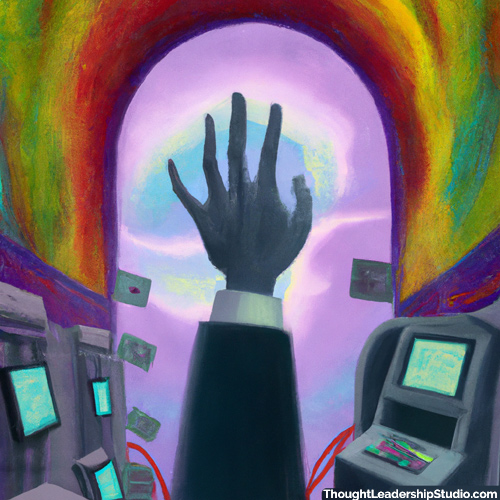 Once that person's raised their hand, now they're a prospect to me, a lead to me is somebody that's just raised their hand or that's we're, we're looking at, and they're, they raise their hand. Now they're saying, Hey, I'm really interested. Now they've become a prospect. And that is where the shift from marketing to sales takes place.
Once that person's raised their hand, now they're a prospect to me, a lead to me is somebody that's just raised their hand or that's we're, we're looking at, and they're, they raise their hand. Now they're saying, Hey, I'm really interested. Now they've become a prospect. And that is where the shift from marketing to sales takes place.
Chris McNeil: Once somebody raises their hand and says, contact me. So the job of marketing is to get them to raise their hand. The job of sales is to get them to take that hand, reach around and grab their wallet and pull out a credit card, basically.
Tom Jackobs: Exactly.
Chris McNeil: ... Of course, for the higher benefit that we're offering. And you are a storyteller. What's a good story that would illuminate this process of asking questions and, and how that extracts the right state of mind, the right information to enable someone to persuade someone to take steps to better themselves through what they're offering them?
Tom's Signature Story
Tom Jackobs: Yeah. So the questions are different than the actual story itself. the story can be your own personal story of why you're passionate about the program that you're offering. So for me, my kind of signature story was my own body transformation, where in 12 weeks I lost 40 pounds of fat, gained 10 pounds of muscle, and got my cholesterol under control, and my high blood pressure under control all without medication.
Chris McNeil: That's awesome.
Tom Jackobs: Yeah, thanks. And when I tell people that story, now they can relate or they can, they believe that I can relate to them. Becausw I'm sure when you were selling fitness as well, you know, you're standing there, you're the fitness trainer, and you know, usually you're in pretty good shape. And the people are like "you don't understand. You don't have to work so hard." And when I show my before and after picture, they're like, okay, I got it.
What did you do? I tell one. And then they're like, okay, I'll sign up for a year, or whatever. It happens. The Levi example. So that the story, yeah. So the story, and, you know, your personal story doesn't always have to relate to what you're selling either. It can be, it can show like how much you care. It can show that you've gone through some really good times and that's why you're able to do what you're able to do now, show that you went through some tragedy that got you to a point where now you do what you do.
So I mean, it could be lots of different stories that you could pull from that create that rapport and that trust with the prospect. And the second story that you should always have prepared is testimonial stories or case study stories of previous clients that you've helped and you know, why they came in, what the process was, and then what the result was. Well, once they achieve their success,
Chris McNeil: So that follows the storyline of facing and overcoming challenges.
Joseph Campbell's Hero's Journey
Tom Jackobs: Yeah. And that's the structure that I use: the Hero's journey.
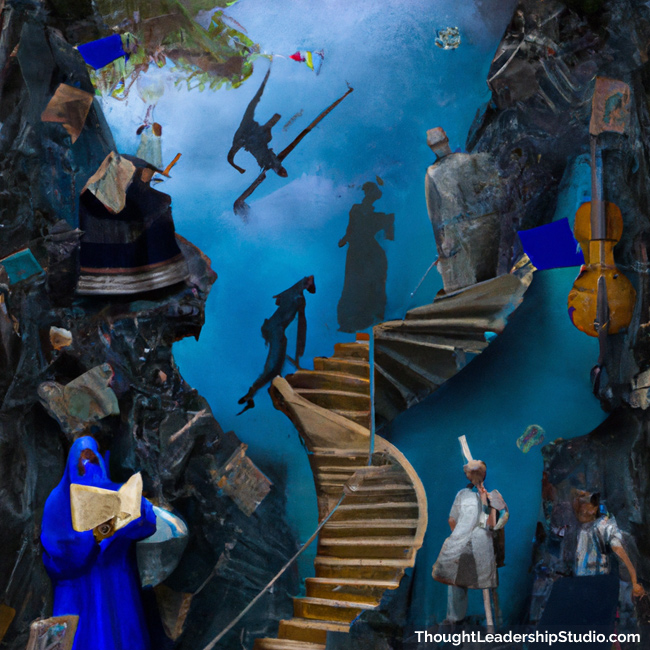 Chris McNeil: Oh, I am very familiar with it. Joseph Campbell's work. Love it.
Chris McNeil: Oh, I am very familiar with it. Joseph Campbell's work. Love it.
Tom Jackobs: Yep. So, and it's, you know, basically in the public domain and lots of people use it. Every good Hollywood's movie uses the hero's journey. And I can break it down into the, the main points on there. And that's, you know, an inciting moment or what I call the impact moment. So that's when there's like a do or die, you had to make a decision. Something was really happening at that point.
For me, my impact moment was the visit to the doctor where he told me I had high blood pressure and high cholesterol, and I was 40 pounds overweight.
Chris McNeil: Ah, so the doctor was your herald figure?
Tom Jackobs: The doctor was the inciting moment. He actually became the villain in my story.
Chris McNeil: Oh, did he? (laugh). Okay.
Tom Jackobs: Yeah, because he wanted me on the medication and he didn't want me to do the diet and exercise necessarily.
Chris McNeil: Oh, interesting.
 Tom Jackobs: It wasn't that he didn't want me to, he just didn't tell me that that was a solution as well, because like, well, here's some medication for you to take to get that under control. I was like, whoa. Like there's something else I can do. Like, do I have to take medication? Like, well, you could do diet and exercise, but nobody really does that, so just take the medication.
Tom Jackobs: It wasn't that he didn't want me to, he just didn't tell me that that was a solution as well, because like, well, here's some medication for you to take to get that under control. I was like, whoa. Like there's something else I can do. Like, do I have to take medication? Like, well, you could do diet and exercise, but nobody really does that, so just take the medication.
Chris McNeil: Interesting. Yeah. And I'm very familiar from my own background in fitness of how there are doctors who are fitness advocates, but there's also a lot that are not as much as they should be.
Tom Jackobs: Yeah.
Chris McNeil: It surprises me how little some know about it. Just because you get an MD, it doesn't mean you had to take exercise physiology. And the nutrition ... I had a doctor tell me said, well, the nutrition they taught us was what you put in an IV when somebody's laying on a hospital bed, not what you eat day to day to achieve high levels of fitness.
But it's about how the medical field is a break-fix system, you know, the medical field is oriented around fixing something that's broken. And the fitness field is around envisioning something better, going beyond the norm, not being average, not getting your health back to average, but, you know, the joy of living at high levels of health where your body has the capacity to perform at high levels, so you just feel great all the time. It's a very satisfying field.
Tom Jackobs: Yeah.
Chris McNeil: And so when you're working with helping people create more impact ... you're the Impact Pilot. If someone came to you and said, "Hey, I am working on my thought leadership. I want to be able to really enrapture an audience. I wanna be able to engage their attention, pull them into a story, and I'm having trouble doing that. I feel tentative up there. The words don't come to me." How do you help them? Where do you start?
And, and where do you lead them to? And what kind of tools do you use that might be relevant and helpful? So our listeners can say, "Oh, I see how I could do that".
The Framework to Find Your Signature Story
Tom Jackobs: Yeah. So I take them through a framework to find and create that story that is that signature story of theirs. And that's actually the gift that I would love to give to your audience as well is just, it's a workbook on how to do that. Just step by step through it - The different steps.
Chris McNeil: So we'll link to it. (Click here for your gift from Tom.)
Tom Jackobs: Cool. and so the very first thing that I do is figure out what are the stories that we have to deal with, because everybody has stories. And what I ask everybody to do is not to just basically do a brainstorm and, and don't put any criteria around the story. Like, oh, that was a big, nah, that wasn't that big of a deal. Or, or whatever. Don't put any kind of notion onto that story, but just write, write the event down and just get a good laundry list of events in your life that had an impact.
And the other, the other word of caution is don't just go for the tragedies. There should be some comedies as well in those stories. Because a lot of people just go right towards like, like the near-death experience or, or something like that, that, oh, I really want a good story. It has to be like "rags to riches" or "near death", or, and it doesn't need to be, it can be a, a really happy story as, as well.
So we take that inventory. The, the second thing is to figure out which story then has the most emotional impact to the storyteller. And so what I have them do is go down the list while I'm watching and kind of put themselves into that story. So what, you know, just put, put yourself back into that time and place that that story happened.
And what I'm looking for is some type of physical reaction. So do they start to breathe a little bit differently? Do they shift around in their seat? Are they getting a little uncomfortable? Are they smiling? Are they crying? You know, all the different things that could happen as they're kind of looking at those stories. And the one that has the most reaction is usually the best one that we have, right. It's the one that's creating some type of emotional charge within the storyteller.
And when it does that in the storyteller, they're going to be able to convey that onto their audience, which makes a much more compelling story. So that's the most important piece in the those first two is get the inventory of stories and then find out which one has the emotion, the most emotional impact. Okay. And then we go through and write out the story and then rearrange it to fit the, the structure of the hero's journey. And then practice, practice, practice, practice, practice...
 Chris McNeil: It's a rehearsal.
Chris McNeil: It's a rehearsal.
Tom Jackobs: Rehearsal, yeah.
Chris McNeil: I remember an audio on sales training I listened to a long time ago. And one of the speakers said to think about the Indianapolis 500 - the pit stops - and how this team is orchestrated on getting a car in and out of the, changing the tires or fueling it up. They're doing A, B, C, and D. They only could get that way through repetitive practice to get to perfect.
Tom Jackobs: Yep. Absolutely. Yeah. And that's what gets rid of the nerves as well. The times that I've been the most nervous up on stage were times where I wasn't prepared. And so then it's like, oh, what do I say next?
***************************************
The transcript is lightly edited for clarity and is a partial transcript- the full interview is on audio. Click here to listen.
***************************************
Free Stuff and Offers Mentioned in Podcast
***************************************
X
***************************************